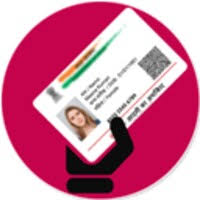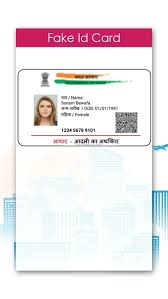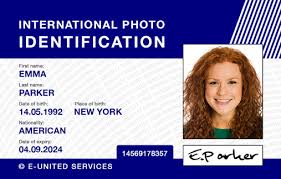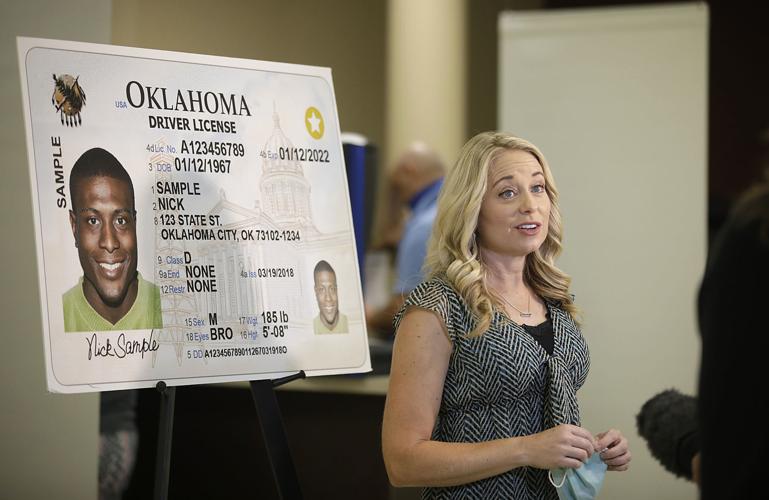fake ids in oklahoma
Outline of the Article: Fake IDs in Oklahoma
1. Introduction
- 1.1 Understanding Fake IDs
- 1.2 Why Fake IDs Are a Problem
2. The Legal Landscape of Fake IDs in Oklahoma
- 2.1 Overview of Oklahoma’s Fake ID Laws
- 2.2 Legal Consequences of Using Fake IDs
- 2.3 Impact on Minors and Underage Drinking
3. How Fake IDs Are Made
- 3.1 Methods Used by Counterfeiters
- 3.2 Evolution of Fake ID Technology
- 3.3 Common Features of Fake IDs
4. Reasons People Use Fake IDs
- 4.1 Underage Access to Alcohol and Clubs
- 4.2 Bypassing Age Restrictions for Purchases
- 4.3 Avoiding Legal Restrictions
5. The Risks of Using a Fake ID
- 5.1 Legal Repercussions
- 5.2 Impact on Future Opportunities
- 5.3 Social and Ethical Implications
6. How Oklahoma Authorities Detect Fake IDs
- 6.1 Law Enforcement Tactics
- 6.2 Training for Bouncers and Retailers
- 6.3 Use of Technology in Detection
7. What Happens When You’re Caught with a Fake ID in Oklahoma
- 7.1 Immediate Consequences
- 7.2 Court Proceedings and Potential Sentencing
- 7.3 Long-Term Impacts
8. How to Spot a Fake ID
- 8.1 Visual Inspection Techniques
- 8.2 Advanced ID Verification Tools
- 8.3 Common Mistakes on Fake IDs
9. Alternatives to Using a Fake ID
- 9.1 Waiting Until Legal Age
- 9.2 Using Legitimate Identification
- 9.3 Social Solutions
10. The Role of Education in Preventing Fake ID Use
- 10.1 School and Community Programs
- 10.2 Parental Guidance
- 10.3 The Importance of Awareness Campaigns
11. The Future of Fake ID Regulation in Oklahoma
- 11.1 Potential Changes in Legislation
- 11.2 Technological Advancements in ID Verification
- 11.3 Collaborative Efforts to Combat Fake IDs
12. The Social Impact of Fake IDs
- 12.1 The Influence on Underage Drinking Culture
- 12.2 Peer Pressure and Fake ID Use
- 12.3 Shifting Public Perception
13. Fake IDs and the Dark Web
- 13.1 Online Marketplaces for Fake IDs
- 13.2 Risks of Purchasing Fake IDs Online
- 13.3 Law Enforcement's Response to Online Sales
14. Case Studies: Fake ID Use in Oklahoma
- 14.1 High-Profile Cases
- 14.2 Lessons Learned
- 14.3 The Broader Implications
15. Conclusion
- 15.1 Summarizing the Issues Surrounding Fake IDs
- 15.2 The Importance of Adhering to the Law
- 15.3 Encouraging Responsible Behavior
16. FAQs
- 16.1 What are the penalties for using a fake ID in Oklahoma?
- 16.2 How can bouncers identify fake IDs?
- 16.3 Are there any legal ways to get into a bar underage?
- 16.4 What happens if a minor is caught with a fake ID?
- 16.5 Can fake IDs be traced back to where they were purchased?
Fake IDs in Oklahoma
1. Introduction
In a world where age restrictions define many aspects of life, the allure of a fake ID can be tempting, especially for young people. But what might seem like a harmless way to access clubs or buy alcohol can have serious consequences. Understanding the reality of fake IDs, particularly in Oklahoma, is crucial for anyone considering their use. This article dives deep into the world of fake IDs, from their creation to the legal and social repercussions, to help you make informed decisions.
2. The Legal Landscape of Fake IDs in Oklahoma
2.1 Overview of Oklahoma’s Fake ID Laws
Oklahoma takes the use of fake IDs very seriously. State laws are strict, and being caught with a fake ID can lead to severe penalties. Under Oklahoma Statutes, possessing or using a fake ID is considered a criminal offense. The law not only targets those who use the IDs but also those who create or distribute them.
2.2 Legal Consequences of Using Fake IDs
The consequences of using a fake ID in Oklahoma range from misdemeanors to felonies, depending on the circumstances. Penalties can include fines, community service, and even jail time. For minors, the legal system can impose additional penalties, such as loss of driving privileges or mandatory attendance in educational programs.
2.3 Impact on Minors and Underage Drinking
For minors, the use of a fake ID is often associated with underage drinking. Oklahoma has zero tolerance for underage alcohol consumption, and using a fake ID to purchase alcohol can exacerbate the situation. The legal consequences can be life-altering, affecting educational opportunities, future employment, and personal reputation.
3. How Fake IDs Are Made
3.1 Methods Used by Counterfeiters
Fake ID production has become increasingly sophisticated. Traditional methods, such as altering real IDs, have been replaced by high-tech techniques. Counterfeiters now use advanced printing technology, holograms, and even microchip embedding to create nearly undetectable fake IDs.
3.2 Evolution of Fake ID Technology
As technology advances, so do the methods used to create fake IDs. Modern counterfeit IDs often include scannable barcodes, magnetic strips, and other features designed to mimic genuine identification cards. This evolution makes it harder for law enforcement and security personnel to detect fakes at a glance.
3.3 Common Features of Fake IDs
Despite their sophistication, fake IDs often have telltale signs. These can include inconsistent font sizes, misspelled words, incorrect formatting, and poor-quality images. In Oklahoma, law enforcement is trained to look for these common flaws when inspecting IDs.
4. Reasons People Use Fake IDs
4.1 Underage Access to Alcohol and Clubs
One of the primary reasons people use fake IDs is to gain access to places they legally cannot enter, such as bars and nightclubs. For many underage individuals, a fake ID represents freedom and social acceptance among peers.
4.2 Bypassing Age Restrictions for Purchases
In addition to accessing venues, fake IDs are often used to bypass age restrictions on purchases such as alcohol, tobacco, and lottery tickets. The motivation here is often the thrill of breaking the rules or the desire to engage in adult activities prematurely.
4.3 Avoiding Legal Restrictions
Some individuals use fake IDs to avoid other legal restrictions, such as probation conditions or travel bans. While less common, these cases highlight the lengths to which some people will go to circumvent the law.
5. The Risks of Using a Fake ID
5.1 Legal Repercussions
The legal risks of using a fake ID are significant. In Oklahoma, being caught with a fake ID can lead to arrest, a criminal record, and long-term consequences. The legal system in Oklahoma does not treat these offenses lightly, and penalties can be harsh.
5.2 Impact on Future Opportunities
A criminal record resulting from fake ID use can have lasting impacts on future opportunities. It can affect college admissions, job prospects, and even housing applications. The risk of losing out on these opportunities is often not worth the short-term benefits of using a fake ID.
5.3 Social and Ethical Implications
Beyond legal and personal consequences, using a fake ID raises ethical questions. It involves deceit and a disregard for the law, which can erode trust and integrity. Additionally, it contributes to larger societal issues, such as underage drinking and substance abuse.
6. How Oklahoma Authorities Detect Fake IDs
6.1 Law Enforcement Tactics
Oklahoma law enforcement agencies are well-equipped to detect fake IDs. Officers are trained in various detection techniques, from physical inspection to the use of advanced scanning devices. Regular crackdowns on fake ID use are a testament to the seriousness with which the state treats this issue.
6.2 Training for Bouncers and Retailers
Bouncers, bartenders, and retailers in Oklahoma are often the first line of defense against fake IDs. They receive training on how to spot inconsistencies and use ID verification tools. Their vigilance plays a crucial role in preventing the use of fake IDs.
6.3 Use of Technology in Detection
Technology is a key ally in the fight against fake IDs. Scanners that read barcodes, magnetic strips, and RFID chips are commonly used in Oklahoma to verify the authenticity of IDs. These tools can quickly detect discrepancies that might not be visible to the naked eye.
7. What Happens When You’re Caught with a Fake ID in Oklahoma
7.1 Immediate Consequences
If you're caught with a fake ID in Oklahoma, the immediate consequences are typically severe. You may be detained, and the fake ID will be confiscated. Depending on the situation, you could be issued a citation or arrested on the spot.
7.2 Court Proceedings and Potential Sentencing
After the initial arrest, you will likely face court proceedings. The charges can range from a misdemeanor to a felony, and the outcome will depend on factors such as your age, the circumstances of the arrest, and whether it's a first offense. Sentencing may include fines, community service, probation, or even jail time.
7.3 Long-Term Impacts
Beyond the immediate legal consequences, having a conviction related to a fake ID can have long-term impacts. It can lead to a criminal record, which can affect your ability to secure jobs, housing, or even financial aid for education. The stigma associated with a criminal record can be difficult to overcome.
8. How to Spot a Fake ID
8.1 Visual Inspection Techniques
One of the simplest ways to spot a fake ID is through careful visual inspection. Look for common errors, such as misspellings, misaligned text, or inconsistencies in the card’s design. Pay attention to the quality of the photo and any signs of tampering.
8.2 Advanced ID Verification Tools
In addition to visual checks, using advanced verification tools can greatly enhance detection accuracy. Tools like barcode scanners, UV light scanners, and RFID readers can reveal hidden security features or discrepancies that are not visible to the naked eye.
8.3 Common Mistakes on Fake IDs
Even the most sophisticated fake IDs often contain common mistakes. These can include incorrect birthdates, mismatched personal information, or formatting errors. Bouncers and law enforcement officers in Oklahoma are trained to spot these inconsistencies quickly.
9. Alternatives to Using a Fake ID
9.1 Waiting Until Legal Age
The most straightforward alternative to using a fake ID is simply waiting until you reach the legal age. While it may seem frustrating at the moment, avoiding the risks associated with fake ID use is well worth the wait.
9.2 Using Legitimate Identification
For those who need an ID for legitimate reasons, such as getting into a concert or traveling, ensure that you're using a real and valid form of identification. There are often temporary or provisional IDs available for specific purposes, which are legal and safe to use.
9.3 Social Solutions
Sometimes, the pressure to use a fake ID comes from social circles. It's important to surround yourself with friends who respect the law and don't pressure you into illegal activities. Finding alternative ways to socialize, such as attending events that don't require ID, can help you avoid these situations.
10. The Role of Education in Preventing Fake ID Use
10.1 School and Community Programs
Educational programs in schools and communities play a crucial role in preventing the use of fake IDs. These programs can raise awareness about the legal and social consequences, helping young people make informed choices.
10.2 Parental Guidance
Parents also play a vital role in educating their children about the dangers of using fake IDs. Open conversations about the risks and legal consequences can discourage minors from seeking out or using fake identification.
10.3 The Importance of Awareness Campaigns
Awareness campaigns, often spearheaded by law enforcement or community organizations, can be effective in curbing the use of fake IDs. These campaigns often highlight real-life consequences and provide resources for those who feel pressured to use fake IDs.
11. The Future of Fake ID Regulation in Oklahoma
11.1 Potential Changes in Legislation
As technology evolves, so too must the laws governing fake IDs. Oklahoma may see changes in legislation aimed at further deterring the use and creation of fake IDs. This could include stricter penalties or more comprehensive ID verification processes.
11.2 Technological Advancements in ID Verification
The future of ID verification in Oklahoma looks promising, with advancements in biometric technology and digital identification. These innovations could make it nearly impossible to use a fake ID successfully.
11.3 Collaborative Efforts to Combat Fake IDs
Oklahoma's efforts to combat fake IDs are likely to involve more collaboration between law enforcement, businesses, and technology providers. Working together, these groups can develop more effective strategies to prevent the use of fake IDs.
12. The Social Impact of Fake IDs
12.1 The Influence on Underage Drinking Culture
Fake IDs contribute significantly to underage drinking culture. They facilitate access to alcohol for minors, which can lead to a host of social and health-related problems. Tackling fake ID use is a key step in reducing underage drinking in Oklahoma.
12.2 Peer Pressure and Fake ID Use
Peer pressure is a significant factor in the decision to use a fake ID. Many young people feel compelled to conform to social norms, even if it means breaking the law. Addressing the social dynamics that encourage fake ID use is crucial in preventing it.
12.3 Shifting Public Perception
Public perception of fake ID use needs to shift from seeing it as a harmless rite of passage to recognizing it as a serious issue. Increased awareness and education can help change attitudes and reduce the prevalence of fake ID use.
13. Fake IDs and the Dark Web
13.1 Online Marketplaces for Fake IDs
The dark web has become a notorious marketplace for fake IDs. Sellers offer high-quality counterfeit IDs, often with promises of undetectability. However, these transactions are illegal and risky, exposing buyers to potential scams or legal repercussions.
13.2 Risks of Purchasing Fake IDs Online
Purchasing a fake ID online comes with significant risks. Aside from the obvious legal consequences, there’s also the danger of identity theft, financial loss, and being targeted by law enforcement. Oklahoma authorities monitor online activities to track down and prosecute those involved in these illegal transactions.
13.3 Law Enforcement's Response to Online Sales
Oklahoma law enforcement agencies are increasingly focusing on the dark web as a source of fake IDs. Through cyber investigations and undercover operations, they aim to dismantle these illegal networks and bring perpetrators to justice.
14. Case Studies: Fake ID Use in Oklahoma
14.1 High-Profile Cases
There have been several high-profile cases in Oklahoma where individuals were caught using or distributing fake IDs. These cases often receive significant media attention, serving as a warning to others about the seriousness of the offense.
14.2 Lessons Learned
These case studies offer valuable lessons, highlighting the consequences of using fake IDs and the effectiveness of law enforcement in catching offenders. They also underscore the importance of making responsible choices and the dangers of engaging in illegal activities.
14.3 The Broader Implications
The broader implications of these cases extend beyond the individuals involved. They affect the community as a whole, contributing to problems like underage drinking and criminal activity. Addressing the root causes of fake ID use is essential for improving public safety and wellbeing.
15. Conclusion
15.1 Summarizing the Issues Surrounding Fake IDs
Fake IDs may seem like a quick and easy solution for underage individuals looking to bypass age restrictions, but the reality is far more complex. From legal repercussions to social and ethical concerns, the use of fake IDs carries significant risks that can have long-lasting impacts.
15.2 The Importance of Adhering to the Law
Adhering to the law, even when it seems inconvenient, is essential for maintaining a safe and orderly society. The consequences of using a fake ID far outweigh any perceived benefits, and it’s important to think carefully before making such a decision.
15.3 Encouraging Responsible Behavior
Encouraging responsible behavior, especially among young people, is key to preventing the use of fake IDs. Through education, awareness, and open communication, we can help individuals make better choices and avoid the pitfalls associated with fake ID use.
16. FAQs
16.1 What are the penalties for using a fake ID in Oklahoma?
Penalties can include fines, community service, probation, and even jail time, depending on the severity of the offense and whether it's a first-time or repeat offense.
16.2 How can bouncers identify fake IDs?
Bouncers are trained to look for inconsistencies in the ID's design, such as incorrect fonts, poor-quality photos, or hologram errors. They may also use ID scanners to verify the authenticity of the card.
16.3 Are there any legal ways to get into a bar underage?
No, entering a bar underage is illegal in Oklahoma. The best approach is to wait until you are of legal drinking age.
16.4 What happens if a minor is caught with a fake ID?
A minor caught with a fake ID may face legal charges, loss of driving privileges, fines, and mandatory education programs. The consequences can affect their future opportunities.
16.5 Can fake IDs be traced back to where they were purchased?
Yes, law enforcement can sometimes trace fake IDs back to their source, especially if they were purchased online or from known counterfeit networks. This can lead to further legal trouble for the buyer.
 scannable Fake Washington DL
scannable Fake Washington DL
 scannable Fake Virginia DL
scannable Fake Virginia DL
 scannable Fake Utah DL
scannable Fake Utah DL
 scannable Fake South Carolina
scannable Fake South Carolina
